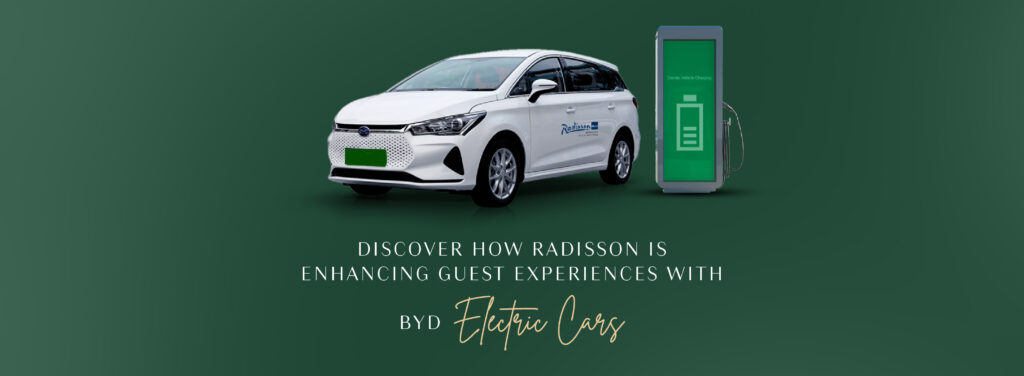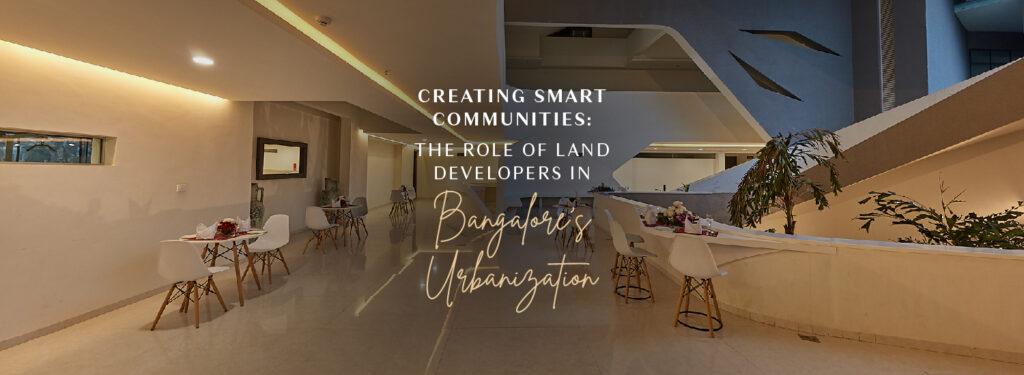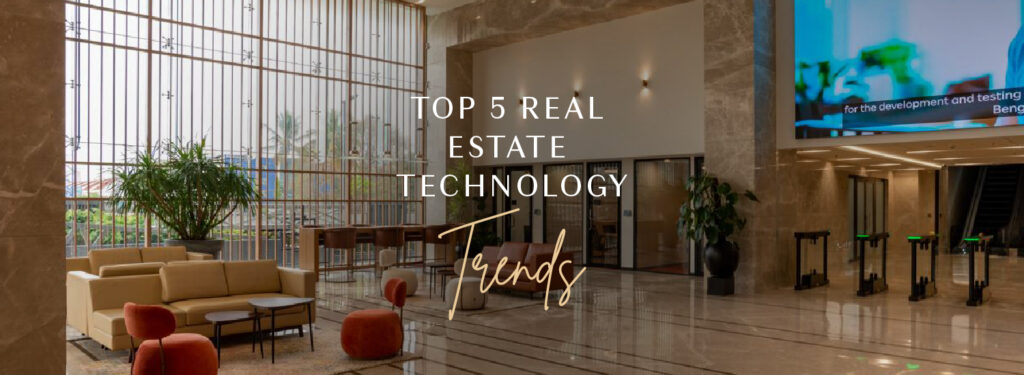
How Radisson is using BYD electric cars for customers
“Electric cars aren’t just vehicles; they are catalysts for change, driving us towards a future where sustainability meets innovation.”
The hospitality industry has undergone a significant transformation in recent years, with a growing emphasis on sustainable practices. This shift reflects a broader recognition of environmental challenges and the need for enterprises to adopt greener alternatives. Among the trailblazers in this movement is Radisson Hotels, a distinguished name in the hospitality sector renowned for its steadfast commitment to sustainability, in partnership with Roach Lifescapes.
One of Radisson’s notable initiatives in this regard is its partnership with BYD, a leading manufacturer of electric vehicles (EVs) that aligns with Radisson’s commitment to reducing its environmental impact. As we delve into Radisson’s collaboration with BYD, we uncover a journey towards a greener future in hospitality that resonates with the ethos of sustainable living championed by Roach Lifescapes, a name synonymous with responsible land development practices in Bangalore.
The Partnership with BYD
BYD, or Build Your Dreams, has emerged as a frontrunner in electric vehicle manufacturing, leveraging cutting-edge technology and a solid commitment to sustainability. With a diverse portfolio of electric cars, buses, and other EV solutions, BYD has established itself as a trusted name in the industry.
Radisson Hotels’ decision to partner with BYD was not merely driven by the need for electric vehicles but stemmed from a shared vision of promoting sustainable mobility solutions. This partnership signifies a strategic alignment of values, where both entities recognize the importance of reducing carbon emissions and mitigating environmental impact through innovative transportation solutions.
The Radisson Hotels and BYD collaboration was founded on mutual respect and a shared commitment to sustainability. Radisson’s reputation as a leader in sustainable hospitality made it an attractive partner for BYD, which sought to collaborate with like-minded organizations to promote the adoption of electric vehicles. By joining forces, Radisson Hotels and BYD aimed to set new standards for environmentally responsible transportation within the hospitality industry.
Implementation at Radisson Hotels
Integrating BYD electric cars into Radisson Hotels’ transportation fleet required careful planning and seamless execution. Recognizing the importance of providing guests with a hassle-free experience, Radisson embarked on a comprehensive implementation strategy to support their operation.
Radisson Hotels invested in installing charging stations across its properties, which are strategically located within the hotel premises. These stations provide guests with convenient access to recharging facilities, alleviate concerns about range anxiety, and ensure uninterrupted mobility. Moreover, Radisson Hotels equipped its staff with the necessary training to familiarize them with electric operation and fleet maintenance.
Benefits for Customers
The introduction of BYD electric cars at Radisson Hotels marks a new era of sustainable transportation. This eco-conscious mode of travel benefits the environment and enhances guests’ comfort, convenience, and accessibility. It’s
One key benefit of BYD electric cars is their quiet and smooth operation, which provides guests with a serene and enjoyable travel experience. Unlike traditional combustion engine vehicles, electric cars produce minimal noise and vibration, creating a peaceful environment conducive to relaxation and comfort. Additionally, electric vehicles offer adequate space and modern amenities, ensuring that guests travel in style and luxury.
By choosing electric cars, guests at Radisson Hotels are actively contributing to reducing their carbon footprint and preserving the environment for future generations. This aligns perfectly with the growing trend of eco-conscious consumerism, where individuals prioritize sustainability in their purchasing decisions. Radisson Hotels is proud to empower its guests to make environmentally responsible travel choices.
Customer Feedback and Reception
The introduction of BYD electric cars at Radisson Hotels has been met with overwhelmingly positive feedback from guests, who appreciate the hotel’s commitment to sustainability and innovation. Many guests have praised Radisson for its proactive approach to environmental stewardship, citing the integration of electric cars as a tangible demonstration of its commitment to reducing carbon emissions.
In addition to positive feedback, Radisson Hotels has actively solicited guest input to identify areas for improvement and address any concerns. Through surveys, feedback forms, and direct communication, Radisson seeks valuable insights into guest preferences and expectations regarding electric transportation. This customer-centric approach enables Radisson to refine its service and continually enhance the guest experience. While the reception of electric cars has been overwhelmingly positive.
Radisson Hotels acknowledge challenges, such as range anxiety and charging infrastructure availability, exist. To address these challenges, Radisson is exploring innovative solutions, such as expanding the charging station network and investing in advanced battery technology. By staying attuned to customer feedback and proactively addressing concerns, Radisson Hotels aims to ensure its sustainability initiatives align with guest expectations.
Sustainability Impact
Integrating BYD electric cars into Radisson Hotels’ operations have profound implications for sustainability, extending far beyond the confines of individual properties. By embracing electric transportation, Radisson Hotels demonstrates its commitment to reducing carbon emissions and mitigating the environmental impact of its operations. Compared to traditional combustion engine vehicles, electric cars significantly reduce greenhouse gas emissions, air pollutants, and noise pollution.
Furthermore, Radisson’s partnership with BYD catalyzed broader industry-wide adoption of electric vehicles and sustainable transportation solutions. By showcasing the feasibility and benefits of electric transportation within the hospitality sector, Radisson Hotels sets a positive example for other industry players to follow. This ripple effect extends beyond the hospitality industry, influencing consumer perceptions and deriving demand for sustainable transportation options across various sectors.
In addition to environmental benefits, integrating electric cars aligns with Radisson Hotels’ broader sustainability goals that contribute to its overall commitment to corporate social responsibility. By reducing its carbon footprint and promoting sustainable practices, Radisson demonstrated its dedication to positively impacting the environment and the communities in which it operates.
Future Plans and Expansions
Looking ahead, Radisson Hotels is committed to further expanding its electric car initiative in partnership with BYD, integrating BYD electric cars as the beginning of its journey towards a greener future. Building upon the success of its partnership with BYD, Radisson aims to broaden the reach of its electric car initiative, ensuring that sustainable transportation options are accessible to an even broader audience, including collaborations with land developers who share sustainable practices in Bangalore. The ambitious expansion strategy involves scaling up the deployment of electric cars across Radisson properties worldwide, thereby reducing reliance on traditional fossil fuel-powered vehicles and further minimizing the carbon footprint of the hospitality industry.
In addition to expanding its electric car fleet, Radisson is dedicated to enhancing its infrastructure to support sustainable transportation. Recognizing the critical role of charging stations in facilitating the widespread adoption of electric vehicles, Radisson plans to invest in additional charging infrastructure to accommodate the growing fleet of electric cars. By strategically locating charging stations within hotel premises and partnering with local stakeholders to establish charging networks, Radisson aims to ensure guests have convenient access to recharging facilities wherever their travels take them.
Moreover, Radisson Hotels recognizes the importance of integrating sustainability into every aspect of its operations beyond transportation. In alignment with its overarching suitability objectives, Radisson is exploring opportunities to implement additional sustainable practices that promote environmental stewardship and resource conservation. This may include initiatives such as energy-efficient building design, incorporating renewable energy sources, implementing waste reduction strategies, and adopting water conservation measures. By embracing a holistic approach to sustainability, Radisson aims to minimize its environmental impact while maximizing positive social and economic outcomes for its guests, employees, and communities.
Conclusion
Radisson Hotels’ integration of BYD electric cars exemplifies its unwavering commitment to sustainability and innovation. Through strategic partnerships and proactive initiatives, Radisson drives positive change in the hospitality industry, setting new standards for environmentally responsible practices. By offering guests a greener and more eco-conscious mode of transportation, Radisson Hotels enhances the guest experience and contributes to a more sustainable future for future generations. As in consumer preferences, Radisson Hotels stands poised to lead the way towards a more sustainable and resilient hospitality industry.

